Male infertility treatment in Kolkata, India
At Sparsha Infertility Centre, we provide the best male infertility treatments in India for males who are suffering from fertility-related issues. Our team of experienced and qualified specialists is dedicated to diagnosing, assessing, and treating a wide range of fertility conditions. We offer personalized treatment plans that are tailored to meet each patient’s unique needs and help them achieve their goals.
Our team consists of highly skilled and experienced fertility specialists, embryologists, and nurses who provide a comprehensive range of male infertility treatments. We not only provide the latest and most advanced technologies, but also offer state-of-the-art diagnostics tools, such as semen analysis, hormone tests, genetic testing, and imaging studies. Along with this, we use cutting-edge treatments such as intrauterine insemination (IUI), sperm retrieval surgical procedures (TESE/MESA), and assisted reproductive technology (ART) to provide the best possible outcomes for our patients.
What is male infertility?
Male infertility is a condition in which a man has difficulty getting or maintaining an erection or ejaculating semen. This can be due to physical conditions, such as hormonal imbalances or blockages in the tubules that carry sperm from the testes to the penis. It can also result from psychological issues, such as stress and anxiety, or lifestyle choices, such as smoking or excessive drinking.How common is male infertility in India?
Male infertility is a significant concern in India, with a high prevalence across the country. According to one study, nearly 95% of males seeking infertility treatment in India were diagnosed with some form of male infertility. Another study found that male infertility was the primary cause of infertility in 83% of cases, with 40% of patients having oligo/astheno/teratozoospermia, 40% having azoospermia, and 21.1% having obstructive azoospermia. Male infertility is a growing concern in India, with a double-digit increase in infertility cases making it a significant personal, societal, and health issue.Why is male infertility on the rise in India?
Male infertility in India is on the rise due to various reasons, including medical causes, lifestyle factors, and environmental factors. Stress and obesity are two of the most significant issues leading to an increase in male infertility in India. Medical causes such as hormonal imbalances, infections, and genetic disorders also contribute to male infertility in India. According to a report by Times Now News, with a recording of 27.5 million couples wanting to conceive but suffering from infertility, there is an alarming increase in infertility complications in India due to a multitude of reasons. The report by WHO states that the availability, access, and quality of interventions to address infertility remain a challenge in most countries, including India.
Diagnosis and treatment of infertility are often not prioritized in national population and development policies and reproductive health strategies and are rarely covered through public health financing. Environmental factors such as a rise in temperature and tight-fitting dress trends also lead to an increase in male infertility in India. However, doctors say that there is no "good quality" data available in India to conclude whether fertility issues such as polycystic ovary syndrome and decline in seminal quality are on the rise or not.
Is low sperm count a factor of infertility in a man?
Certainly, low sperm count is identified as one of the reasons for male infertility in India. It is considered to be one of the major causes of male infertility, with an estimation of around 12-18 million couples in India being diagnosed with infertility annually. Male infertility caused by the "male factor" is responsible for approximately 30% of all infertility cases in India. As per the reports, the prevalence of primary infertility is estimated to range from 0.5-3% in India, and half of all infertility cases are due to male infertility. The Indian Council of Medical Research (ICMR) performed a study on male infertility in central India, which showed that poor sperm count and poor sperm motility were the most prevalent male fertility issues. The reduction in sperm quality, total sperm count, and anomalies in the male genital tract, including testicular disorders, are among the most common causes of infertility in males.What types of treatments are available for male infertility?
There are two types of treatments available for male infertility: surgical or nonsurgical treatments.Surgical treatments for male infertility include:
- Vasectomy reversal: This is a procedure in which a surgeon rejoins the tubes that were cut or blocked during vasectomy, allowing sperm to pass into semen once again.
- Varicocele treatment: A varicocele is an enlarged vein in the scrotum that can impair sperm production. The vein can be blocked using a tiny clamp, or it may be cut and sealed with a laser. In some cases, the entire vein can be removed to improve fertility.
- Testicular biopsy: This procedure involves removing a small sample of tissue from the testicles in order to examine it for signs of abnormal sperm production or a blockage.
- Azoospermia Treatment: This is a treatment for men with no sperm in their semen (azoospermia). It involves harvesting sperm from the testicles or the epididymis, which can then be used for assisted reproductive technologies such as IUI or IVF. There are multiple surgical procedures available such as TESA, PESA, and MESA that can treat this condition and help to regain fertility.
Nonsurgical treatments for male infertility include:
- Hormonal therapies: These treatments can help to restore normal hormone levels, which can improve sperm production. Sometimes testosterone replacement therapy is also used to increase sperm count and motility.
- Anejaculation: This treatment is used for men who are unable to ejaculate due to a medical condition. In such cases, sperm can be retrieved directly from the epididymis or testicles, and then used in assisted reproductive technologies.
- Congenital Adrenal Hyperplasia (CAH): This is a hormonal disorder in which the adrenal glands produce excessive amounts of androgens. These hormones can interfere with normal sperm production. Treatment for CAH typically involves taking medication to lower androgen levels, which can improve fertility.
- Antibiotics: In some cases, antibiotics may be prescribed to treat infections or other conditions that can affect sperm production.
- Retrograde Ejaculation: This is a condition in which the ejaculate goes backward into the bladder instead of out through the penis. Treatment for retrograde ejaculation typically involves taking certain medications to improve bladder muscle control and prevent semen from going into the bladder.
What happens in the treatment of male infertility?
The treatment of male infertility typically involves attempting to identify and address the underlying cause of a man’s fertility issues. This could involve lifestyle changes, medications, or surgical interventions depending on the circumstances. Common steps of treatment for male infertility include:- Diagnosis: The first step in the treatment of male infertility is to identify and diagnose the underlying cause. This process typically involves a physical examination, medical history review, semen analysis, genetic testing, hormone testing, and other tests. Depending on the results, further treatments may be recommended to improve fertility.
- Treatment: Once the diagnosis has been made, treatments may include lifestyle changes, medications, and/or surgical interventions. For example, in cases of hormonal imbalances or infections, antibiotics may be prescribed. In cases of abnormal sperm production or blockages, surgery may be recommended. Additionally, assisted reproductive technologies such as IUI and IVF can be used to increase a man’s chances of conception.
- Follow-up: Regular follow-up visits are recommended to monitor progress and ensure that treatments are effective. Additionally, fertility specialists may recommend additional tests or treatments based on the results of earlier tests or as new information becomes available.
Why trust Assisted Reproductive Techniques or ART?
Assisted Reproductive Technologies (ART) are treatments used to assist with conception and pregnancy. These treatments have been proven effective in helping couples achieve successful pregnancies, even when traditional methods of conception have failed. ART involves a variety of procedures including:- IVF (In-Vitro Fertilization): IVF is a process in which eggs are retrieved from the woman and fertilized with sperm in a laboratory setting. The resulting embryos can then be transferred to the uterus for implantation.
- IUI (Intrauterine Insemination): IUI is a procedure where sperm are inserted into the uterus near the time of ovulation. This can help increase the chances of conception by increasing the number of sperm that reach the egg.
- ICSI (Intracytoplasmic Sperm Injection): ICSI is a procedure in which a single sperm is injected directly into an egg in a laboratory setting. This procedure is often used for couples with male infertility where there is an abnormally low sperm count or poor-quality sperm.
What are the main causes of male infertility and how do they affect sperm production?
Male infertility can be caused by a variety of factors including physical problems, hormonal imbalances, genetic issues, and lifestyle choices. Common causes of male infertility include:- Abnormal sperm production/function: Conditions such as varicocele or undescended testicles can cause abnormal sperm production or function which can lead to infertility.
- Hormonal imbalances: Poor hormone production or an imbalance of hormones can lead to reduced sperm count and/or poor-quality sperm.
- Infections/diseases: Certain infections such as chlamydia and gonorrhea can affect fertility, as can other chronic diseases such as diabetes.
- Erectile dysfunction: Erectile dysfunction can interfere with successful intercourse and therefore impact fertility.
- Age: Generally, male fertility declines with age. Additionally, older males may be more likely to suffer from other conditions that can lead to infertility such as hormonal imbalances or erectile dysfunction.
- Chromosomal abnormalities: Chromosomal abnormalities such as Klinefelter's syndrome can lead to a decreased sperm count or other fertility issues.
- Lifestyle factors: Certain lifestyle factors, such as smoking and excessive alcohol use, can impair fertility. Additionally, certain medications and environmental contaminants can also negatively impact male fertility.
Why choose us for it?
At our fertility clinic, we understand what a difficult and emotional journey it can be for couples trying to conceive. We specialize in providing comprehensive fertility services such as IVF/ICSI, IUI, male infertility evaluation, pre-implantation genetic testing (PGT-A), egg donation, and more. Our experienced team of specialists is committed to providing personalized care and support throughout your fertility journey.We recognize the importance of having a trusting relationship with our patients, which is why we strive to create an environment where you feel comfortable discussing your issues and concerns. In addition to providing state-of-the-art treatments, we also offer counseling services for couples struggling with infertility.
Our counselors are there to provide emotional support during this difficult period in your life. If you’re struggling with male infertility, we can help. Contact us today to learn more about how our fertility services can help you realize your dreams of starting or expanding your family. We look forward to being part of your journey!
Frequently Asked Question (FAQs)
- Yes, male infertility can be treated. Male fertility treatment options mainly include sperm retrieval techniques such as micro-epididymal sperm aspiration (MESA), testicular sperm extraction (TESE), and percutaneous epididymal sperm aspiration (PESA). Other treatments may include hormone therapy, assisted reproductive technology (ART), or surgery to correct anatomical abnormalities such as varicocele. In some cases, simple observation is the best approach when there are no obvious causes of male infertility or if pregnancy has been unsuccessful after several attempts.
- Masturbation has not been linked to lowered sperm count or lower quality of sperm. However, excessive or compulsive masturbation can lead to physical and emotional issues that may interfere with fertility. If a man is concerned about his fertility, he should speak to a doctor for further testing and evaluation.
Related Services offered at Sparsha IVF
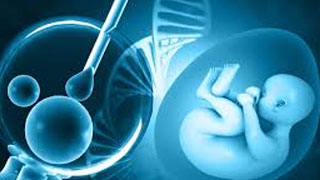
IVF
The procedure where an ovulated egg from the woman's body is fertilized with sperms outside the body is called In Vitro Fertilization or IVF.
Read More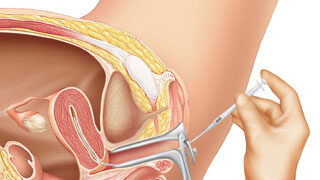
IUI
The procedure to treat infertility through artificial insemination is known IUI or Intrauterine Insemination.
Read More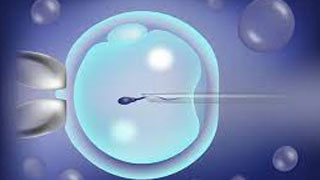
ICSI
ICSI is a complex and extremely careful laboratory procedure, where every single sperm is injected with expert precision.
Read More
Antenatal Care
Our new one-stop approach resulted in a diagnosis of early pregnancies, high-risk pregnancies with all proper investigations.
Read More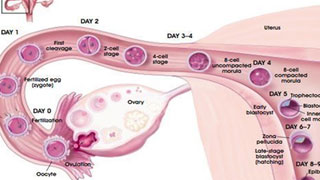
Blastocyt Transfer
Before discussing the culture and transfer process, we should first understand what the blastocyst is.
Read More
Cryopreservation
Specialized care and support in cryopreservation, the sperms and embryos are frozen and then thawed.
Read More
Male Patients Evaluation
It is estimated that up to one-third of all fertility complications of couples is related to a male factor.
Read More
Fertility Diagnostic
Our Infertility Centres in Madhyamgram and Chinar Park offer one-stop fertility diagnostic services for all your problems.
Read More
Fetal Echo Cardiography
We provide the service of a prenatal diagnosis for Congenital Heart Disease (CHD) which has a significant impact on the management.
Read More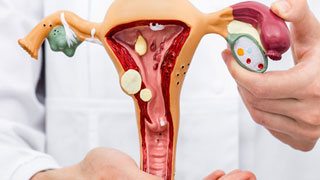
Gynecological Care
Sparsha Infertility Centre – Madhyamgram, has become an absolute hub for diagnosing and treating all sorts of gynaecological conditions.
Read More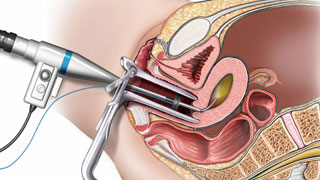
Hysteroscopy
Through Hysteroscopy the doctor is able to look inside the uterus and diagnose and treat the causes of abnormal bleeding.
Read More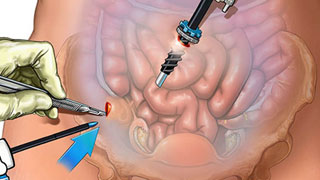
Laproscopy
Laproscopy is used to examine the organs inside the abdomen. It is a low-risk procedure requiring only small incisions.
Read More
Book an Appointment
Fill in the details below to enable us contact you instantly
